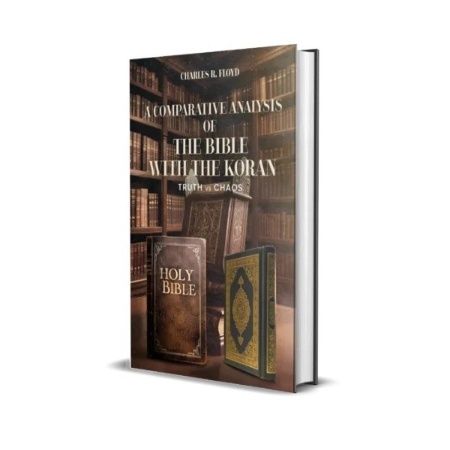Charles R. Floyd’s book A Comparative Analysis of the Bible with the Koran examines the theological, historical, and doctrinal differences between the two texts. While critically examining scripture inconsistencies, societal effects, and interpretations, it draws attention to significant variations in themes like as grace, mercy, works, and redemption. Reading this stimulating study inspires readers to learn more about scripture and faith.
The Holy Bible
The core of the Christian faith is the Holy Bible, which is considered to be the infallible word of God. It highlights the value of a close relationship with God, salvation via faith, and the concepts of divine grace.
1. The Bible declares itself as inspired by God (2 Timothy 3:16), guiding doctrine, correction, and virtuous living.
2. Salvation is through grace and trust in Jesus Christ, rather than through human deeds (Ephesians 2:8-9).
3. The Bible’s teachings are clear and consistent because it tells a story chronologically.
4. Places a strong emphasis on the eternal promise of salvation via Jesus Christ, love, and redemption.
The Holy Koran
Regarded as the primary religious text of Islam, the Holy Koran is thought to be the words of Allah as they were revealed to Prophet Muhammad. It highlights the value of doing good deeds, submitting to Allah, and following a disciplined moral and spiritual path.
1. Because salvation is correlated with one’s acts, the KORAN emphasizes the significance of good works and personal accountability (Sura 2:25, 2:277).
2. Those who repent and make an effort to live a moral life are granted hope and forgiveness by Allah’s mercy and guidance, which are recurrent themes (Sura 4:173).
3. Using an Islamic perspective, the KORAN retells stories from previous scriptures (Sura 7:43).
4. It offers guidance on how to live a happy life and get everlasting reward through worship, social justice, and interpersonal behavior.









